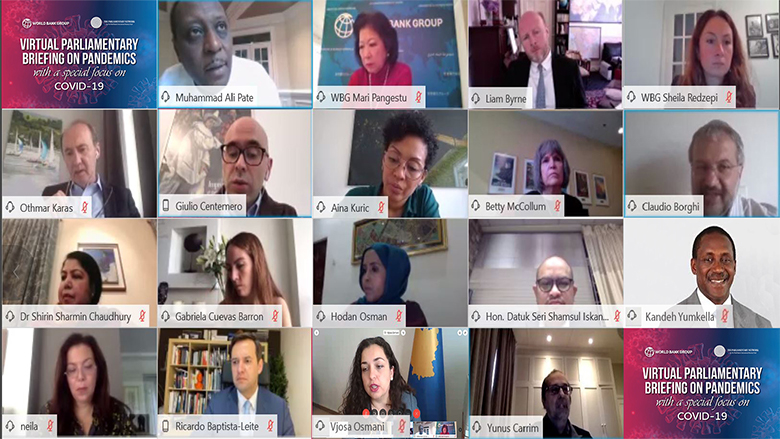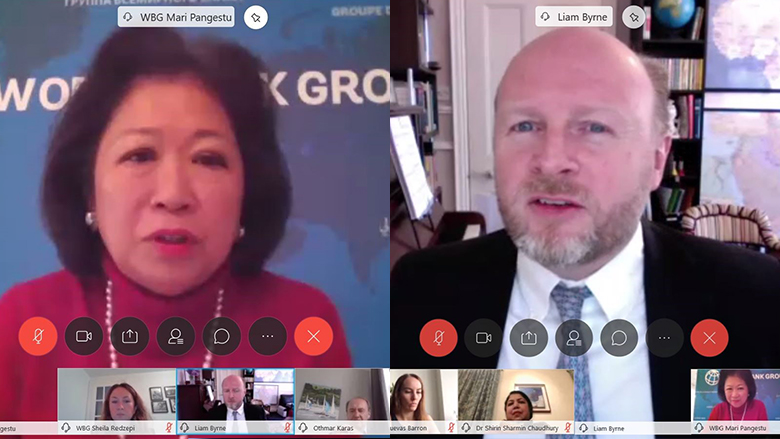April 24, 2020 – The World Bank and the Parliamentary Network on the World Bank and IMF gathered some 200 participants from more than 55 countries and the European Parliament, the Inter-Parliamentary Union, and Parliamentary Assembly of the Mediterranean for a Virtual Parliamentary Meeting on Pandemics with a Special Focus on COVID-19 on April 24, 2020.
The event was the occasion for prominent legislators from around the world to convene with their peers and World Bank Senior Management, as well as representatives of key parliamentary organizations, to share knowledge and experiences in dealing with the socioeconomic impact of COVID-19.
Parliamentarians have been at the heart of the response to this unparalleled global health challenge, passing exceptional measures, using new ways to debate and vote virtually, and overseeing their governments’ handling of the crisis, all while considering how to manage the recovery. The meeting gave these essential policymakers insights into how to cope with the current coronavirus outbreak as well as how to prepare for future health emergencies.
In a special address, the new World Bank Managing Director for Development Policy and Partnerships, Mari Pangestu, encouraged participants to take collective action to overcome this unprecedented development challenge, stating, “We have the same objective of serving the people.” She commended parliamentarians for the myriad of measures they are taking and shared how the World Bank’s recent initiatives can complement them by emphasizing policy-based financing to protect the most vulnerable, preserve jobs, shorten recovery times, and ensure a strong and inclusive recovery, adding, “Parliamentarians can give us input and understanding as to where those responses should be targeted.”
Indeed, for the World Bank, the meeting was the occasion to gain insights into countries’ priorities and needs in order to support them more effectively. “Bringing everyone together from countries most affected by or at risk of COVID-19 to share strategies and best practices is incredibly helpful in terms of informing our responses in our operations.” Sheila Redzepi, Vice-President of External and Corporate Relations, World Bank Group. This sentiment was echoed by Muhammad Ali Pate, Global Director of Health, Nutrition and Population, World Bank Group who said he could apply the diversity of experiences shared in the context of efforts to support countries.


